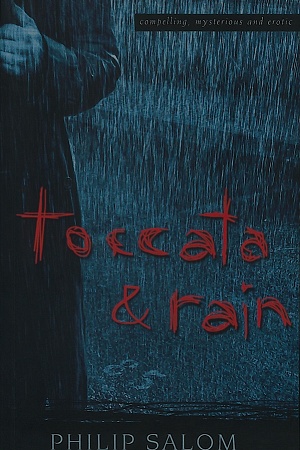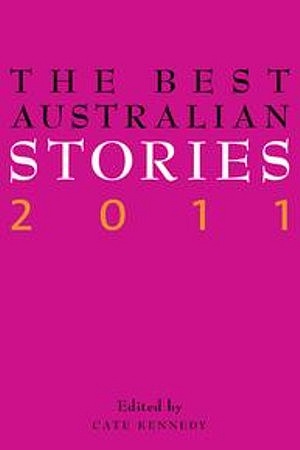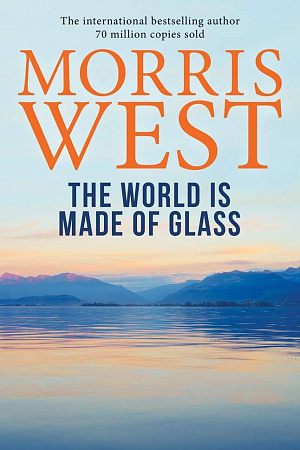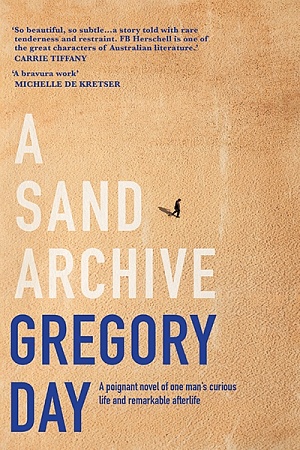Travelling around writing
Going Away is full of traveller's tales, the kinds that only seem bizarre when you're back home, so it's impossible not to ask, did these things happen to you?
Basically, they did, or things like them. But more bizarre things happened which I didn't write about. Either I couldn't make them credible or they detracted from the balance of the novel. The book was never meant to be a collection of anecdotes.
Travellers of this variety, the ‘I'm young and I'm questing' variety, are pretty horrible really. Why brave the horribles for your first novel?
I like young people who are questing. I like people who are prepared to explore and take risks, particularly people who are prepared to risk their definitions of themselves. I don't like people who are ostentatious about it (I would hope the book is humorous on this very point) because they're trapped in a prison of their own making. In the vernacular, they're wankers. But I like the metaphor of the journey. I hope I travel until I die.
The obvious question: what's Stephen looking for by going away?
Home. That's what the name of the book is in Irish (‘Abhaile’). I did think of calling the book ‘Going Home’, but that's the name of a collection of stories by the Aboriginal writer, Archie Weller. Good book, too.
And what does he find?
When l was growing up and at university, there was a belief that Australian intellectuals and artists had to ‘go away’ to achieve fulfilment. It was the Milan Kundera - ‘Life is Elsewhere’ principle. It still has currency. Most intellectual discussion and literary debate is Eurocentric. This is a book about an Australian who goes away, and finds he has to come back. In a sense, my book ends at the beginning: Through travelling the world, the central character perhaps learns how to travel in his own world, that is, Australia. I believe a lot of Australians, myself-included to an extent, have yet to discover this country.
Tasmania gets another serve in this novel. And so does Catholic education. How do you think both these parts of the novel will be received in the Irish translation of Going Away?
I very much hope this book isn't a case of Tasmania getting ‘another serve’. I see a lot of intellectual dishonesty in attitudes towards Tasmania. Tasmanian history is Australian history writ particularly vividly and concisely. Tasmania is the book's background; its character is part of the narrator's character. If he had been a Victorian or a Queenslander, the same principle would have applied. Nor is the theme of Catholic education meant to be as important as that of a boy beginning the transition to manhood in an exclusively male adolescent subculture (that is, boarding school). How will the book be received in Ireland? My translator, Louis de Paor, sees it as being in the tradition of Irish language writing. Irish is not a bookish language; it's a language which is heard and spoken. My book is an Irish-Australian story told by an Irish-Australian voice. Writing it, I was more conscious of telling a story than of writing a novel. Both of us are also interested in the aboriginal aspects of Gaelic culture.
We wouldn't, of course, get through a Martin Flanagan novel without some footy. You've received lavish praise for the way you write about sport: why does it hit a chord, do you think?
I don't see the book as being written in my voice. It's written in the voice of a confused, and at times desperate young man in his early twenties. He grabs at what makes sense, without necessarily knowing why. One of the biggest temptations I had to fight in writing the book was to explain his actions. The reason I chose to write it in the first person was because I thought it made the action more immediate, less thoughtful, if you like. I regard each thing I do in writing as a step towards something else. If the next novel I write is the one I have in mind, it will be different in almost every respect.
How do you see the relationship between journalism and fiction?
Journalism, for me, is essentially learning about the world. It's about abandoning your preconceptions, or seeking to, and looking at what it is you're actually confronted with. As a form of writing, it's incredibly old. The Faber Book of Reportage starts with Plato's account of the death of Socrates and goes through to James Fenton's account-of Marcos's downfall. There are all sorts of practical problems associated with journalism, particularly in this country, but that's basically how I see it in principle. Fiction, for me, is the inner investigation, the inner construction. Fiction need answer no rules other than its own. It's closer to myth.









Leave a comment
If you are an ABR subscriber, you will need to sign in to post a comment.
If you have forgotten your sign in details, or if you receive an error message when trying to submit your comment, please email your comment (and the name of the article to which it relates) to ABR Comments. We will review your comment and, subject to approval, we will post it under your name.
Please note that all comments must be approved by ABR and comply with our Terms & Conditions.